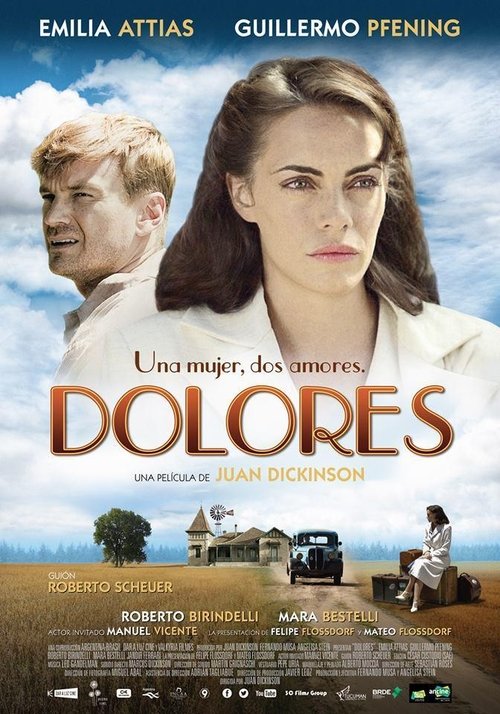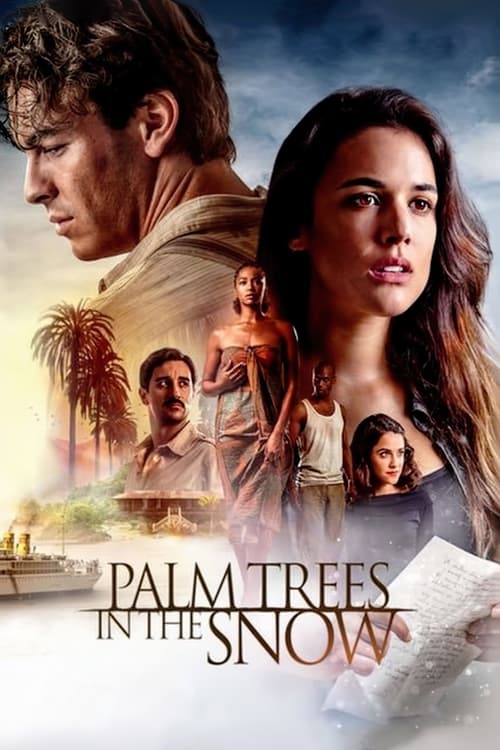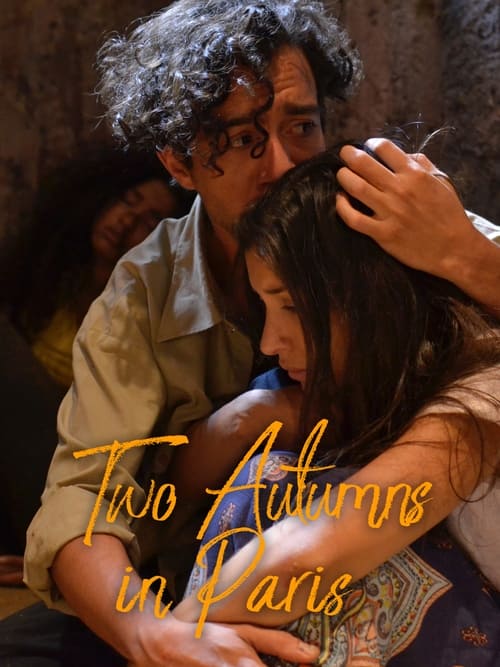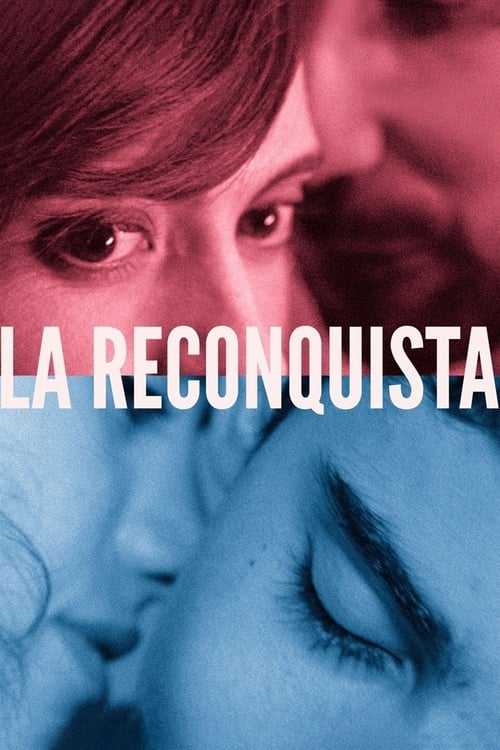
Ask Your Own Question
What is the plot?
Dolores stands at the edge of the Argentine pampas, the wind tugging at her dark hair as she gazes across the endless fields. It is 1940, and the air is thick with the scent of earth and distant smoke. She has just arrived at the family estate, La Estancia del Sol, after receiving word that her sister, Isabella, has died suddenly. The news came like a thunderclap, shattering the fragile peace she had built for herself in Buenos Aires. Now, Dolores must return to the place of her childhood, to the sprawling ranch where memories both sweet and bitter linger like the dust on the old wooden floors.
She steps inside the house, the creak of the door echoing through the empty halls. The rooms are dim, the curtains drawn, as if the house itself is mourning. Her nephew, eight-year-old Mateo, sits at the kitchen table, his small hands clutching a wooden toy horse. He looks up at her with wide, uncertain eyes. "Aunt Dolores?" he whispers, his voice trembling.
Dolores kneels beside him, her heart aching. "Yes, Mateo. I'm here now. I'll take care of you." She pulls him into a tight embrace, feeling the weight of responsibility settle on her shoulders.
The next morning, Dolores meets Jack, her brother-in-law and Isabella's husband. He is a tall, reserved man with sharp features and a quiet demeanor. His eyes are shadowed with grief, but there is something else there--something that Dolores recognizes from her youth. A flicker of the old affection, the unspoken longing that once danced between them when they were children. Jack greets her with a stiff nod. "Thank you for coming, Dolores. Isabella would have wanted you here."
Dolores nods, her voice soft. "I'll do everything I can for Mateo."
As the days pass, Dolores settles into the rhythms of the estate. She tends to Mateo, helping him with his lessons and comforting him in the nights when he wakes from nightmares. She walks the fields, breathing in the scent of the grass and the distant sea. But the peace is fragile. The world beyond the pampas is changing. News of the war in Europe reaches them in fragments--rumors of battles, of countries falling, of families torn apart. The tension between the British and German communities in Argentina grows palpable, and Dolores feels it in the way people look at one another, in the hushed conversations that stop when she enters a room.
One afternoon, as Dolores rides through the fields, she encounters Octavio Brandt, the neighboring landowner. He is a man of German descent, with a commanding presence and a smile that seems to hold secrets. He greets her with a warm handshake, his eyes lingering on hers. "Dolores," he says, his voice smooth. "I've heard much about you. Welcome back to the pampas."
Dolores feels a strange pull toward Octavio, a connection that surprises her. He invites her to his estate, a grand house with sweeping gardens and a view of the horizon. Over tea, they talk of the war, of the changing world, of the old ways that are slipping away. Octavio speaks with passion, his words stirring something deep within Dolores. "We are all caught in the tide of history," he says. "But we must choose our own path."
As the weeks go by, Dolores finds herself drawn to Octavio, to the way he sees the world, to the way he looks at her. She begins to spend more time at his estate, sharing long conversations and stolen glances. But her feelings for Jack remain, a quiet ache that refuses to fade. She is torn between the past and the present, between the love she once knew and the new passion that stirs within her.
One evening, as Dolores walks back to La Estancia del Sol, she is stopped by a group of local men. They are angry, their faces twisted with suspicion. "You're seen too often with Brandt," one of them says, his voice harsh. "He's German. You know what that means now."
Dolores stands her ground, her voice steady. "I am not afraid of who I choose to befriend."
The men glare at her, but they do not harm her. Dolores feels the weight of their hostility, the danger that lurks beneath the surface of their words.
Back at the estate, Jack confronts her. "You've been spending a lot of time with Octavio Brandt," he says, his voice tight with emotion. "People are talking. You know what's at stake."
Dolores meets his gaze, her heart pounding. "I'm not afraid of what people say, Jack. I'm not afraid of the war. I just want to live my life."
Jack's expression softens, but there is still a sadness in his eyes. "I care about you, Dolores. I always have. But the world is changing. We can't ignore that."
Dolores feels the tension between them, the unspoken words that hang in the air. She wants to reach out to him, to tell him how she feels, but she cannot find the words.
The next day, Dolores receives a letter from Buenos Aires. It is from her friend, Ana, warning her of the growing hostility toward Germans in Argentina. "They're rounding up people, Dolores," Ana writes. "You need to be careful."
Dolores feels a chill run down her spine. She knows that Octavio is in danger, that his life could be at risk if the authorities come for him.
That night, Dolores goes to Octavio's estate. She finds him in his study, packing a small bag. "I have to leave," he says, his voice urgent. "They're coming for me."
Dolores feels a surge of fear. "Where will you go?"
Octavio looks at her, his eyes filled with desperation. "I don't know. But I can't stay here."
Dolores makes a decision. "I'll help you. I'll get you out."
Together, they plan Octavio's escape. Dolores uses her knowledge of the land to find a safe route, guiding him through the fields and into the hills. As they walk, Dolores feels the weight of what she is doing, the risk she is taking. But she cannot let Octavio be captured.
As they reach the edge of the pampas, Octavio turns to her. "Thank you, Dolores. I'll never forget what you've done for me."
Dolores feels a lump in her throat. "Be safe, Octavio."
Octavio disappears into the night, leaving Dolores alone on the edge of the world.
Back at La Estancia del Sol, Dolores is confronted by Jack. "Where is Octavio?" he demands, his voice filled with anger. "I know you helped him."
Dolores meets his gaze, her heart breaking. "I couldn't let them take him, Jack. I couldn't."
Jack's expression softens, but there is still a sadness in his eyes. "You've put yourself in danger, Dolores. For him."
Dolores feels the weight of his words, the truth of what she has done. "I had to do what I thought was right."
Jack sighs, his shoulders slumping. "I understand. But the world is not kind to those who defy it."
Dolores feels the tension between them, the unspoken words that hang in the air. She wants to reach out to him, to tell him how she feels, but she cannot find the words.
The next day, Dolores receives news that Octavio has been captured. He is being held in a detention camp, awaiting deportation. Dolores feels a surge of guilt and fear. She knows that she must do something, that she cannot let Octavio suffer.
She goes to the authorities, pleading for Octavio's release. But they are unmoved, their faces cold and unyielding. "He is a German," one of them says. "He is a threat to our country."
Dolores feels a surge of anger. "He is a man, not a threat. He has done nothing wrong."
The authorities ignore her, their decision final.
Back at La Estancia del Sol, Dolores is consumed by guilt and sorrow. She feels the weight of what she has done, the consequences of her actions. She knows that she cannot save Octavio, that she cannot change the world.
One night, as Dolores sits by the fire, Mateo comes to her. "Aunt Dolores," he says, his voice soft. "I'm scared."
Dolores pulls him into her arms, her heart aching. "I'm here, Mateo. I'll protect you."
Mateo looks up at her, his eyes filled with trust. "I love you, Aunt Dolores."
Dolores feels a surge of love and determination. She knows that she must be strong, that she must protect Mateo, that she must find a way to survive in this changing world.
The next day, Dolores receives a letter from Octavio. It is brief, but filled with emotion. "Thank you for everything, Dolores," he writes. "I will never forget you."
Dolores feels a surge of sorrow, but also a sense of peace. She knows that she did what she could, that she followed her heart.
As the days pass, Dolores continues to care for Mateo, to tend to the estate, to live her life. She feels the weight of the world, the pain of loss, the uncertainty of the future. But she also feels a sense of resilience, a determination to forge her own path.
One evening, as Dolores stands at the edge of the pampas, she looks out across the fields. The wind tugs at her hair, the scent of earth and distant smoke fills the air. She feels a sense of peace, a sense of hope. She knows that the world is changing, that the future is uncertain. But she also knows that she is strong, that she can face whatever comes.
Dolores takes a deep breath, her heart filled with determination. She turns and walks back to La Estancia del Sol, ready to face whatever the future holds.
What is the ending?
In the ending of "Dolores," Dolores Huerta continues her fight for labor rights and social justice, reflecting on her legacy and the impact of her activism. The film concludes with a sense of hope and determination, showcasing her enduring spirit and the ongoing struggle for equality.
As the film approaches its conclusion, we see Dolores Huerta, now an elder stateswoman of activism, reflecting on her life's work. The scene shifts to a gathering where she is honored for her contributions to labor rights and civil rights. The atmosphere is filled with a mix of reverence and celebration, as attendees share stories of her influence and the changes she has inspired.
Dolores stands before the crowd, her face a canvas of emotion--pride, resilience, and a hint of vulnerability. She speaks passionately about the importance of continuing the fight for justice, emphasizing that the struggle is far from over. Her words resonate deeply, reminding everyone present of the sacrifices made by those who came before them and the work that still lies ahead.
In a poignant moment, the film juxtaposes archival footage of Dolores in her younger years, leading protests and rallies, with the present-day gathering. This visual contrast highlights the passage of time and the enduring nature of her activism. The audience is captivated, reflecting on the legacy she has built and the lives she has touched.
As the credits begin to roll, we see glimpses of Dolores engaging with younger activists, passing on her wisdom and encouraging them to continue the fight. The film closes with a powerful image of her walking away from the event, a symbol of her ongoing journey and the hope she instills in future generations.
In this final sequence, the fates of the main characters are intertwined with Dolores's legacy. Dolores Huerta remains a vibrant force for change, embodying the spirit of activism. The film leaves viewers with a sense of continuity in the struggle for social justice, emphasizing that while Dolores has made significant strides, the fight for equality and workers' rights continues, inspiring new generations to take up the mantle.
Is there a post-credit scene?
The movie "Dolores," produced in 2016, does not have a post-credit scene. The film concludes its narrative without any additional scenes or content after the credits roll. The focus remains on the life and activism of Dolores Huerta, highlighting her contributions to labor rights and social justice, leaving the audience with a sense of closure regarding her impactful journey.
What challenges does Dolores Huerta face in her activism throughout the film?
In the film 'Dolores', Dolores Huerta faces numerous challenges in her activism, including resistance from both the agricultural industry and the government. She encounters sexism within the labor movement, as her male counterparts often undermine her contributions. Additionally, she grapples with the personal sacrifices required for her activism, including the strain on her family life and relationships.
How does Dolores Huerta's relationship with Cesar Chavez evolve in the film?
Throughout 'Dolores', the relationship between Dolores Huerta and Cesar Chavez is depicted as both collaborative and complex. Initially, they share a strong partnership in their fight for farmworkers' rights, united by their vision for social justice. However, as the film progresses, tensions arise due to differing leadership styles and priorities, particularly regarding the role of women in the movement, leading to a rift that highlights the challenges of their alliance.
What role does Dolores Huerta's family play in her life and activism?
Dolores Huerta's family plays a significant role in her life and activism, providing both support and conflict. Her children often express feelings of neglect due to her commitment to the labor movement, which creates emotional turmoil for Dolores. The film illustrates her struggle to balance her responsibilities as a mother with her dedication to social justice, showcasing the personal sacrifices she makes for her cause.
What specific events or actions does Dolores Huerta take to advocate for farmworkers' rights?
In 'Dolores', Huerta is shown organizing strikes, leading protests, and negotiating contracts for farmworkers. One pivotal moment is her role in the Delano grape strike, where she mobilizes workers and raises awareness about their plight. Her efforts include grassroots organizing, public speaking, and forming alliances with other civil rights groups, demonstrating her relentless commitment to improving the lives of farmworkers.
How does the film portray the impact of Dolores Huerta's activism on the labor movement?
The film 'Dolores' portrays Huerta's activism as transformative for the labor movement, highlighting her contributions to the United Farm Workers (UFW) and the broader civil rights landscape. Her strategies, such as grassroots organizing and coalition-building, are shown to empower marginalized workers and challenge systemic injustices. The film emphasizes her role in shaping labor policies and raising public consciousness about the struggles of farmworkers, illustrating her lasting legacy.
Is this family friendly?
"Dolores," produced in 2016, is a documentary that chronicles the life and activism of Dolores Huerta, a prominent labor leader and civil rights activist. While the film primarily focuses on her contributions to social justice and labor rights, it does contain some themes and scenes that may be considered objectionable or upsetting for children or sensitive viewers.
-
Social Injustice: The film addresses issues of discrimination, poverty, and the struggles faced by farmworkers, which may be distressing for younger audiences.
-
Violence and Protest: There are scenes depicting protests and confrontations between activists and law enforcement, which may include moments of tension and aggression.
-
Personal Sacrifice: Dolores Huerta's personal sacrifices, including the impact on her family life and relationships, may evoke strong emotional responses.
-
Historical Context: The film discusses the harsh realities of labor conditions and the fight for workers' rights, which may be difficult for some viewers to process.
-
Emotional Struggles: The documentary touches on themes of resilience and struggle, showcasing the emotional toll of activism, which may resonate deeply with sensitive viewers.
Overall, while "Dolores" is an inspiring story of empowerment and activism, it does contain elements that may not be suitable for all children or sensitive individuals.































